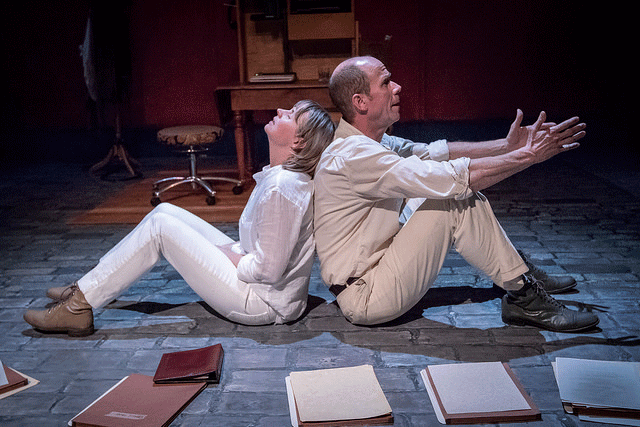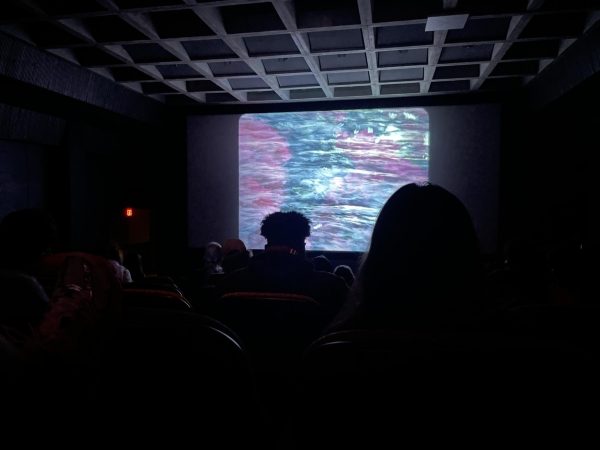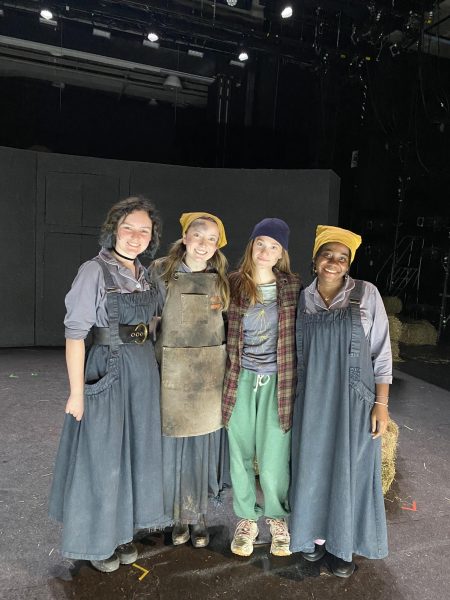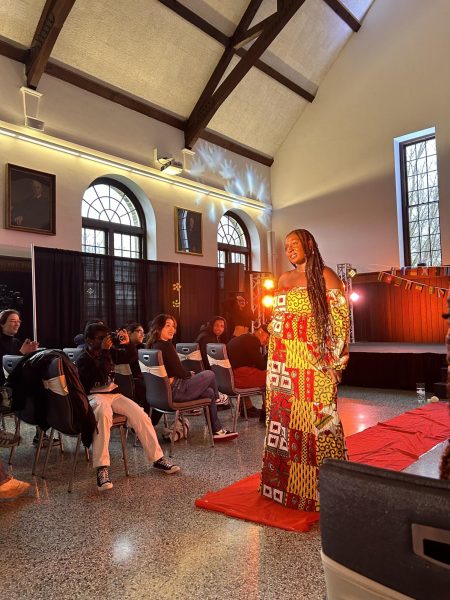Berlin Diary: An Innovative Performance
People gathered in Brehmer Theater on September 28 to watch the play Berlin Diary by Andrea Stolowitz, put on by Liz Hayden and Damon Kupper of Hand2Mouth Productions. The audience was seated on the stage, level with the set, in an intimate fashion that led to face-to-face interactions with the actors. The set itself was simple: a desk, two seats and a coat rack strung with costumes. Throughout the performance, actors pulled props out of the desk, setting the scene in a simple, yet elegant fashion. Perhaps the most interesting feature of the play itself was the fact that there were only two actors: Hayden and Kupper. They alternated roles, often even sharing one character and alternating lines. At the beginning this style was hard to follow, but the adjustment to this unique performance was quick and the actors’ effortless flow from character to character was amazing to watch. This shift between characters emphasized the unimportance of gender to the story, and allowed the audience to focus more on the actual subject matter being performed.
The character most often played by both actors was Andrea, a young woman living in Oregon with her husband and children. The play followed her incredible journey to discover her family’s history in Berlin after receiving a grant to write a play about her great-grandfather’s diary written in 1939, while trying to find out what made her family so distant in present times. The fact that this play was written about the playwright’s real life made the story that much more meaningful and special.
The running time of the performance was an hour and a half, with a 10 minute intermission where audience members were welcome to enjoy appetizers of assorted cheeses, cupcakes and fruits while socializing and discussing the content of the play. A majority of students in attendance were part of an acting class at Colgate, but the audience was still widely diverse in age. Several of Hayden and Kupper’s respective family members were present, and faculty and staff were in attendance as well. This made the question-and-answer portion of the night much more interesting because of the varying perspectives between audience members.
Although this play was about the heartbreaking story of families affected by the Holocaust, Stolowitz was able to make the audience laugh throughout the performance with her quick wit and sarcasm, making the heavy theme of the performance a little lighter while still maintaining the seriousness of the subject matter. Stolowitz also used dramatic pauses between scenes to allow the audience to stop and relate the story on the stage to those of their own families, even if they didn’t share the same struggles. These contemplations stayed with audience members throughout the performance, allowing for a deeper level of understanding.
This play had many meaningful levels, including a discussion on the genetics of familial trauma and how the passing down of suffering through generations can create distance between people. The labor of keeping a modern family close hit home to many audience members that shared the same struggles. Even if an audience member could not relate directly to the loss that Andrea’s family experienced during the Holocaust, the deeply personal style of the performance allowed for introspection into one’s own family. Almost every dramatic and extreme moment was spoken by the actors directly to the audience, not to each other, making the discussion even more personal.
The fluidity of this performance and the relevance of the subject matter in our current world was shocking, especially because of the amount of families being displaced right now. This story itself allowed for a discussion of this pressing issue, but in a much more personal matter because the story was about one family’s journey. This makes the subject matter less of a discussion of politics and more of a discussion of real people being affected by real issues like this daily. An open discussion that can touch and connect people of all different backgrounds is hard to find, but Berlin Diary did so effortlessly and created a long-lasting impression on all that were lucky enough to experience it.
Contact Sasha Balasanov at [email protected].








